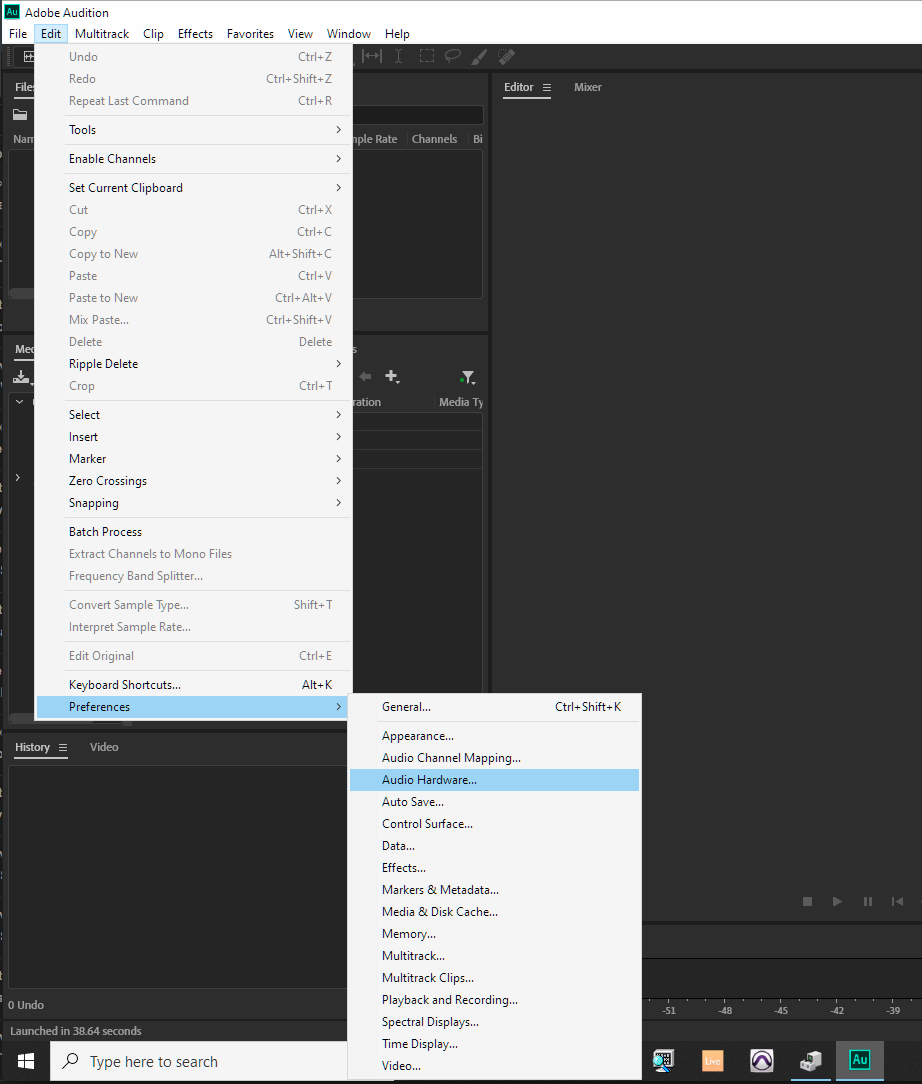Adobe Audition 2.0 installs an ASIO driver, the Audition Windows Sound driver, which is considered a wrapper that is, an adapter between Adobe Audition, an ASIO application, and a non ASIO soundcard for an existing DirectSound-compatible sound card installed on a computer. If you are not able to obtain an ASIO driver, or if you are not using ASIO-compliant audio devices, then use the Audition 3.0 Windows Sound driver. However, increasing the buffer size increases the audio data latency which may cause delay between the moment Audition begins sending audio data and the moment it actually reaches the physical output.
Asio Driver For Adobe Audition Download

Asio Driver For Adobe Audition 3.0 Download

Audio Stream Input/Output (ASIO) is a computer sound card driver protocol for digital audio specified by Steinberg, providing a low-latency and high fidelity interface between a software application and a computer's sound card. Whereas Microsoft’s DirectSound is commonly used as an intermediary signal path for non-professional users, ASIO allows musicians and sound engineers to access external hardware directly.
Asio Driver For Adobe Audition Cs6
ASIO bypasses the normal audio path from a user application through layers of intermediary Windows operating system software so that an application connects directly to the sound card hardware. Each layer that is bypassed means a reduction in latency (the delay between an application sending audio information and it being reproduced by the sound card, or input signals from the sound card being available to the application). In this way ASIO offers a relatively simple way of accessing multiple audio inputs and outputs independently. Its main strength lies in its method of bypassing the inherently high latency and poor-quality mixing and sample rate conversion of Windows NT 5.x audio mixing kernels (KMixer)[citation needed], allowing direct, high speed communication with audio hardware. Unlike KMixer, an unmixed ASIO output is 'bit identical' or 'bit perfect'; that is, the bits sent to or received from the audio interface are identical to those of the original source, thus potentially providing higher audio fidelity. In addition, ASIO supports 24-bit samples, unlike Windows NT 5.x MME and DirectSound which truncate 24-bit samples to the upper 16 bits, whereas Windows NT 6.x mixer provides 32-bit floating point output. Higher bit-depth samples offer the potential for a higher signal-to-noise ratio.